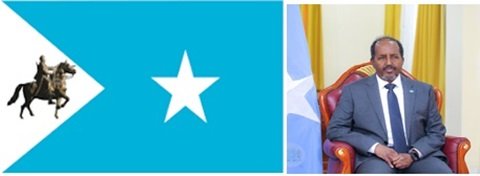By Mohamed Ali Mirreh
As we are getting ready to celebrate one year after the successful liberation of Lasanod city from Somaliland’s secessionist forces, it’s essential to reflect on the challenges that have emerged since. The SSC-Khatumo administration initially had high hopes of being recognized as a new federal state within Somalia. Khatumo State was proposed to serve as an interim administration for two years before gaining full recognition as a federal member state. However, it has become increasingly clear that President Hassan Sheikh Mohamud not only opposes Khatumo’s inclusion but has also actively undermined the aspirations of the Sool, Sanaag, and Cayn people (SSC) and their efforts to preserve Somalia’s unity.

This harsh reality may shock some of the SSC people who, perhaps naively, placed their trust in promises made by the Federal Government. Yet, President Hassan’s actions have consistently demonstrated his disinterest in recognizing Khatumo as a federal state. His stance became evident during our eight-month struggle against Somaliland forces in Lasanod city.
Instead of condemning the secessionist’s brutal acts against the civilians of Lasanod city, the president absurdly suggested that both sides cease hostilities and negotiate—a statement that equated SSC forces, who were fighting for Somalia’s territorial integrity, with secessionists. This was an insult not only to the SSC people but to all Somalis who value the unity and sovereignty of their country.
President Hassan further downplayed the crimes committed by the Somaliland forces when he claimed that only 36 people were killed during Somaliland’s indiscriminate bombing of Lasanod city, when in reality, hundreds lost their lives in the genocide acts of the Somaliland forces, and over 200,000 people were displaced. His statement echoed that of Catarina Laing, the former UN representative for Somalia, who was known for her pro-Somaliland stance, suggesting a disturbing alignment with biased narratives.
After Somaliland force’s defeat and the liberation of Lasanod city, President Hassan sent a delegation of traditional elders from Mogadishu, ostensibly to assess the city’s damage. While this gesture appeared sympathetic to the SSC cause, it was, in reality, a superficial attempt to appear objective. When these elders attempted to produce a report based on their findings, the president suppressed it, preventing the assessment from being published.
More recently, President Hassan has insisted that Khatumo state is not more than two regions and therefore must meet the “conditions” to be recognized as part of the federal government, including merging with Makhir State, an administration still in its formative stages. This demand, conveyed to SSC politicians and others from Puntland who personally oppose its president, Said Deni, is part of a broader strategy to sow division and weaken Puntland, a state that has often been at odds with the federal government.
President Hassan seems to have overlooked the fact that Galmudug state, which he approved as a state, consists of only one and a half regions, while Khatumo state comprises two or more. His true intention appears to create discord within Puntland by misleading the people of Makhir into believing they should merge with Khatumo to form a new federal state. This tactic is designed to create enmity between SSC people and Puntland, thereby weakening a powerful state that has challenged the federal government.
It is time not to trust whatever President Hassan says in supporting Khatumo state for that matter or for what he has ever said. And given the president’s actions, which clearly show his lack of intent to integrate Khatumo State into the Federal Government, and the widespread distrust among Somalis due to his alleged involvement in corruption, the leadership of Khatumo State must urgently reconsider its relationship with the federal government. This is a critical moment that calls for a decisive shift in focus. Khatumo state must prioritize its own interests by building a robust and self-sufficient administration with good governance.
The leadership and people of SSC must unite to strengthen their governance structures, develop local institutions, and ensure that their citizens’ needs are met independently of Mogadishu. The vision for Khatumo state should now center on self-sufficiency—creating a sustainable economy, enhancing security, and establishing services that improve the quality of life for its people.
To achieve sustainable economy, we must focus on establishing good tax-collection system to generate revenue. Furthermore, we have to plan exploiting our mineral and oil resources as we have now an opportunity to cooperate with international oil companies interested in the Holhol well, which is still under the watch of a company that had a contractual agreement with the previous Somali government before its collapse in 1991.
By focusing on these goals, the Khatumo administration can secure a future where it is no longer reliant on external recognition or approval. The path forward lies in self-determination, where the strength and resilience of the administration will lay the foundation for a prosperous and autonomous state.
Now is the time for us to look inward, drawing on our own resources and people to build an administration that truly serves the interests of our people. In doing so, Khatumo state will not only protect its sovereignty but also set an example for other regions in Somalia striving for genuine autonomy and self-reliance.
Mohamed Ali Mirreh
Email: m.mmirreh@gmail.com
———
Read related articles from Wardheernews archives


Leave a Reply